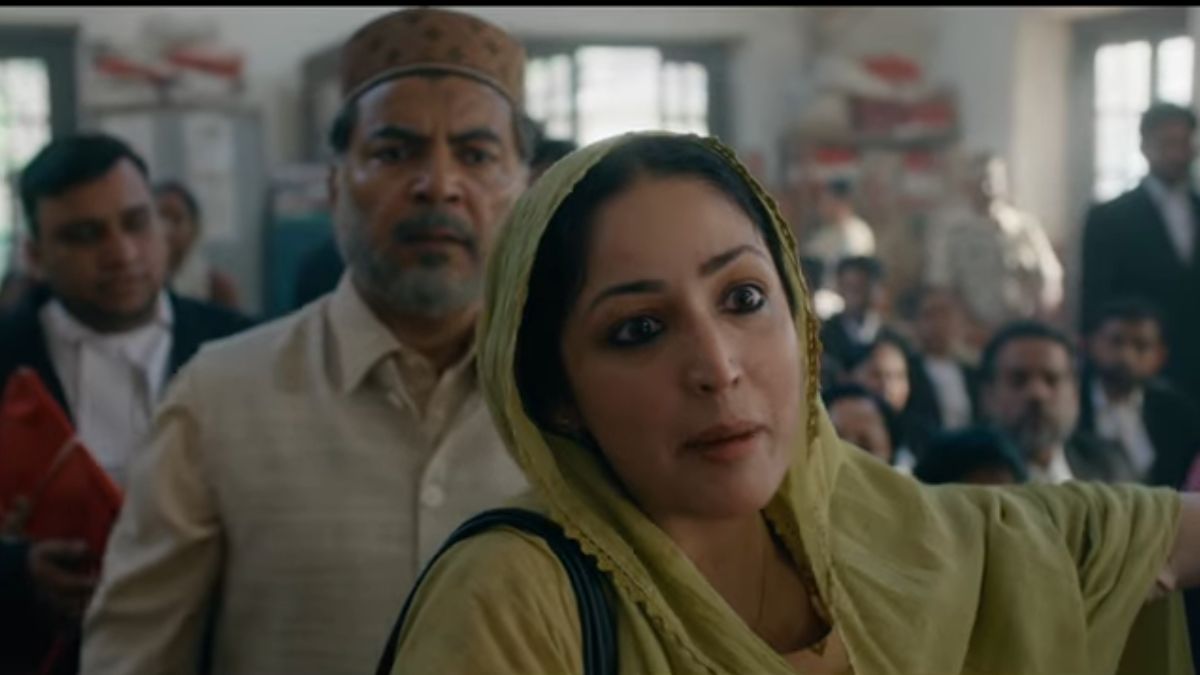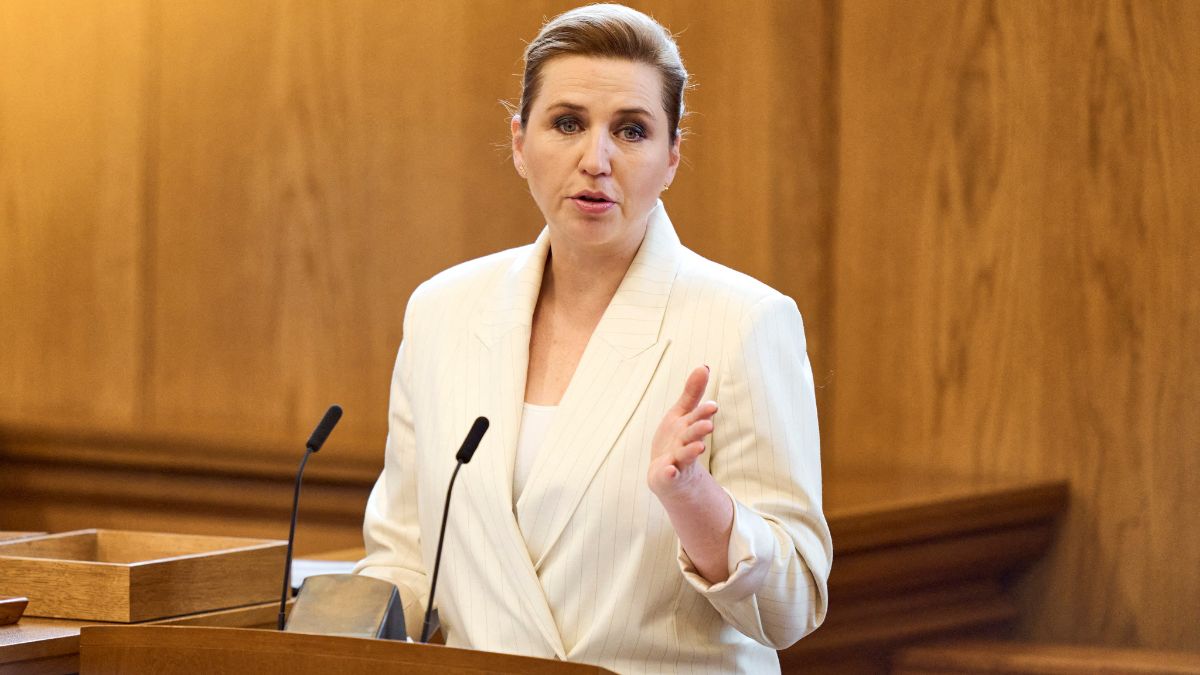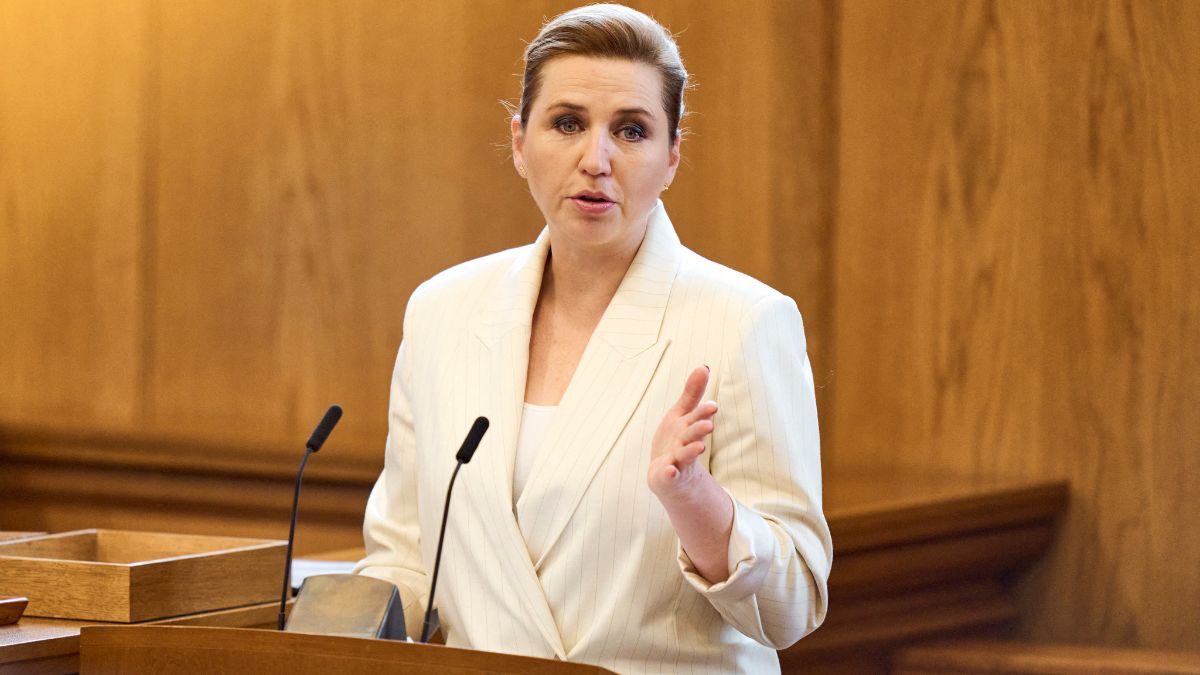The teaser of Yami Gautam Dhar-starrer Haq has brought the 1985 Shah Bano judgment into the limelight. The actor plays a character named Shazia Bano, a fictionalised version of Shah Bano.
The courtroom drama also stars Emraan Hashmi, who plays the opposing party and Dhar’s husband in the film. As the movie thinks back on the landmark Shah Bano case, we take a closer look at the verdict and its ramifications.
Shah Bano case
In April 1978, Shah Bano, a 62-year-old Muslim woman, filed a petition in a court in Madhya Pradesh’s Indore, demanding maintenance from her divorced husband, Mohammed Ahmad Khan, a renowned lawyer.
The duo, who got married in 1932, had five children – three sons and two daughters. After 14 years of marriage, Khan took a second wife. He lived with both wives for a while.
However, he later threw Shah Bano and her children out, asking them to move to a separate residence.
When Khan stopped giving her Rs 200 per month that he had promised, Shah Bano approached the court, seeking maintenance for herself and her five children under Section 123 of the Code of Criminal Procedure, 1973.
The provision stipulates that a man provide for his wife during the marriage and after divorce if she is unable to sustain herself financially.
Khan contested Bano’s claim, citing the Muslim Personal Law in India, which requires the husband to provide maintenance only for the iddat period after divorce.
Iddat is a period, usually lasting three months, which a woman has to observe after the death of her husband or a divorce before she can remarry. If a woman is pregnant, iddat lasts until childbirth.
The All India Muslim Personal Law Board supported Khan’s argument, saying courts cannot interfere in matters concerning Muslim Personal Law. It said that would violate the Muslim Personal Law (Shariat) Application Act, 1937.
Impact Shorts
More ShortsThe board argued that the Act allowed courts to give verdicts in matters related to divorce, maintenance and other family issues based on Shariat.
Speaking to Hindustan Times in 2011, Shah Bano’s youngest son Jameel Ahmed Khan recalled the case. “Izzat ki ladai thi (It was a fight for self-respect). It was a fight against our izzat being maligned in the locality and a family matter.”
The Shah Bano verdict
In 1985, the Supreme Court upheld the decision of the lower courts, directing Shah Bano’s husband to pay her a maintenance amount under the alimony provision of the Indian law.
Then Chief Justice of India YV Chandrachud said in his verdict, “Section 125 was enacted in order to provide a quick and summary remedy to a class of persons who are unable to maintain themselves. What difference would it then make as to what is the religion professed by the neglected wife, child or parent? Neglect by a person of sufficient means to maintain these and the inability of these persons to maintain themselves are the objective criteria which determine the applicability of section 125.”
“Such provisions, which are essentially of a prophylactic nature, cut across the barriers of religion. The liability imposed by section 125 to maintain close relatives who are indigent is founded upon the individual’s obligation to the society to prevent vagrancy and destitution. That is the moral edict of the law and morality cannot be clubbed with religion,” he added.
The milestone verdict recognised Muslim women’s claim for equality and dignity, especially in cases of marriage. It brought a gendered stance on the need for reform in Muslim personal law.
ALSO READ: Why is SC order on maintenance to divorced Muslim women a big deal? What did laws say earlier?
Congress govt brings Muslim Women Act
Prominent Muslim groups opposed the Supreme Court verdict in the Shah Bano case, saying the judgement was against Muslim personal laws. The Hindu right-wing used the verdict to push for a uniform civil code.
“Former diplomat and prominent Muslim leader Syed Shahabuddin visited our house as did ulema (clergymen) from Indore and other cities, who told us that the verdict was against the Shariat,” Jameel, Shah Bano’s son, told HT.
“The pressure became such that I felt winning the case wasn’t so good. It would’ve been better if we lost,” he added.
Amid pressure from conservative Muslims, the then Rajiv Gandhi government passed the Muslim Women (Protection on Divorce) Act, 1986, which was considered an overturning of the Supreme Court verdict.
Section 3(1)(a) of the Act mentioned “a reasonable and fair provision and maintenance to be made and paid” by a Muslim husband to his divorced wife.
The legislation, however, stated that the maintenance period would last for the iddat period. It added that if a woman could not provide for herself, the magistrate was empowered to direct the Wakf Board to provide the aggrieved woman and her dependent children with means of sustenance.
Shah Bano’s lawyer, Danial Latifi, challenged the Act’s Constitutional validity. The top court upheld the validity of the new law, saying it does not deny Muslim women the right to alimony.
However, it said the liability cannot be restricted to the period of iddat.
A year earlier, Shah Bano, who had reportedly met PM Rajiv Gandhi in Delhi, had in a press conference, said she was forsaking the maintenance as it was against the Shariat.
“I thought if we didn’t backtrack now, azaab (grief) would be on us. Since it was a matter of religion, I didn’t want us to become a precedent,” Jameel told the newspaper.
Shah Bano died of a brain haemorrhage in 1992.
With inputs from agencies


)

)
)
)
)
)
)
)
)



